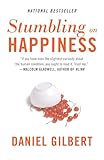Stumbling on happiness / Daniel Gilbert.
Material type: TextPublisher: New York : A.A. Knopf, 2006Description: xvii, 277 p. : ill., 25 cmISBN: 1400077427 (pbk. : alk. paper); 9781400077427 (pbk. : alk. paper); 1400042666 (alk. paper); 9781400042661 (alk. paper); 0676978576 (bound); 9780676978575 (bound)Subject(s): HappinessDDC classification: 158 LOC classification: BF575.H27 | G55 2006Online resources: Contributor biographical information | Publisher description | Sample text
TextPublisher: New York : A.A. Knopf, 2006Description: xvii, 277 p. : ill., 25 cmISBN: 1400077427 (pbk. : alk. paper); 9781400077427 (pbk. : alk. paper); 1400042666 (alk. paper); 9781400042661 (alk. paper); 0676978576 (bound); 9780676978575 (bound)Subject(s): HappinessDDC classification: 158 LOC classification: BF575.H27 | G55 2006Online resources: Contributor biographical information | Publisher description | Sample text | Item type | Current library | Call number | Copy number | Status | Notes | Date due | Barcode |
|---|---|---|---|---|---|---|---|
 Books
Books
|
Female Library | BF575 .H27 G55 2006 (Browse shelf (Opens below)) | 1 | Available | MISSING | 51952000098676 | |
 Books
Books
|
Main Library | BF575 .H27 G55 2006 (Browse shelf (Opens below)) | 1 | Available | STACKS | 51952000127987 |
Browsing Female Library shelves Close shelf browser

|
No cover image available | No cover image available |

|

|

|

|
||
| BF51 .A73 2000 Psychology and religion : an introduction / | BF531 .H324 2014 Handbook of emotion regulation / | BF531 .S38 2014 Science and emotions after 1945 : a transatlantic perspective / | BF575 .H27 G55 2006 Stumbling on happiness / | BF575 .S5548 2005 LEA How to speak up without putting others down : leader's guide / | BF575 .S5548 2005 LEA How to speak up without putting others down : leader's guide / | BF575 .S5548 2005 PAR How to speak up without putting others down : participant's workbook / |
Includes bibliographical references and index.
Acknowledgments -- Foreword -- pt. 1. Prospection -- 1. Journey to Elsewhen -- pt. 2. Subjectivity -- 2. The view from in here -- 3. Outside looking in -- pt. 3. Realism -- 4. In the blind spot of the mind's eye -- 5. The hound of silence -- pt. 4. Presentism -- 6. The future is now -- 7. Time bombs -- pt. 5. Rationalization -- 8. Paradise glossed -- 9. Immune to reality -- pt. 6. Corrigibility -- 10. Once bitten -- 11. Reporting live from tomorrow -- Afterword -- Notes -- Index.
Why are lovers quicker to forgive their partners for infidelity than for leaving dirty dishes in the sink? Why do patients remember long medical procedures as less painful than short ones? Why do home sellers demand prices they wouldn't dream of paying if they were home buyers? Why does the line at the grocery store always slow down when we join it? In this book, Harvard psychologist Gilbert describes the foibles of imagination and illusions of foresight that cause each of us to misconceive our tomorrows and misestimate our satisfactions. Using the latest research in psychology, cognitive neuroscience, philosophy, and behavioral economics, Gilbert reveals what we have discovered about the uniquely human ability to imagine the future, our capacity to predict how much we will like it when we get there, and why we seem to know so little about the hearts and minds of the people we are about to become.--From publisher description.
1 2

There are no comments on this title.